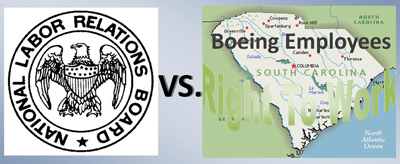NRTW Attorneys Win Victory Against 'Army Wives' Teamsters
Union policies prevented nonunion employees from finding work on ABC’s Army Wives television show From The National Right To Work Legal Defense Foundation: Washington, DC (December 19, 2011) – The National Labor Relations Board (NLRB), the federal agency charged with administering most private sector labor law, has upheld an Administrative Law Judge’s decision awarding over $55,000 in back pay to a television employee who was discriminated against by Teamster officials. The Board’s ruling stems from unfair labor practice charges filed by Thomas Coghill, an ABC driver who received free legal assistance from National Right to Work Foundation staff attorneys. Teamster Local 509 union officials are party to a monopoly bargaining agreement with ABC in Charleston, South Carolina that forces workers to go through the union’s hiring hall to get a job with the studio. Because Local 509 union members were working on other sets when production of Army Wives started, Thomas Coghill – a member of a different Teamster local – was hired as a makeup driver during the show’s first two seasons. As more Local 509 members became available to work on Army Wives, a dispute arose among various Teamster officials over who should be eligible to work on the program. Coghill was eventually removed from Local 509’s “Movie Referral List” because he did not belong to Local 509 while its members continued to receive preferential access to jobs on the set of Army Wives. Coghill responded to Local 509’s biased hiring procedure by filing unfair labor practice charges against the union on the grounds that federal labor law prohibits union officials from discriminating against nonunion employees. National Right to Work Foundation staff attorneys subsequently persuaded an Administrative Law Judge to award Coghill over $55,000 in back pay. Union lawyers unsuccessfully appealed the ruling to the NLRB, which has now affirmed the judge’s decision in its entirety.


